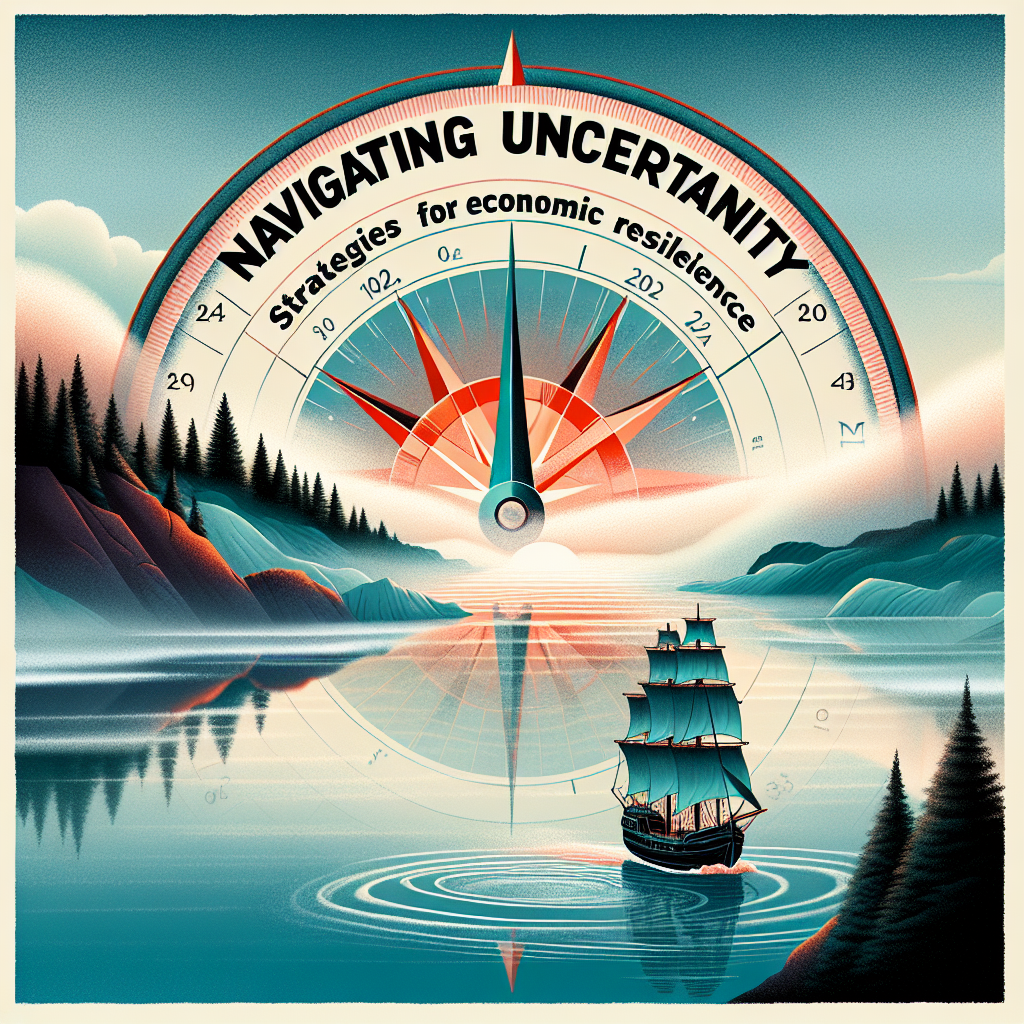Title: Navigating Uncertainty: Strategies for Economic Resilience in 2024
As we step into 2024, the global economic landscape remains a complex mosaic of opportunities and challenges. The aftershocks of the COVID-19 pandemic are still reverberating through supply chains, geopolitical tensions are reshaping trade relations, and technological advancements are rapidly altering the nature of work. In such a volatile environment, economic resilience is not just a goal but a necessity. Here, we explore strategies that individuals, businesses, and governments can adopt to navigate the uncertainty of our times.
### 1. Embracing Flexibility and Adaptability
The first pillar of economic resilience is flexibility. For businesses, this means being agile in their operations and adaptable in their strategies. Companies that thrived in the past few years have often been those that quickly pivoted their business models. In 2024, this might involve diversifying supply chains, adopting remote working technologies, or even reimagining product lines to meet new consumer demands.
For individuals, adaptability can be fostered by embracing lifelong learning. As industries evolve, so too must our skills. Upskilling and reskilling initiatives will be crucial for workers to remain relevant in an ever-changing job market.
### 2. Strengthening Technological Infrastructure
Technology continues to drive economic change, offering both risks and rewards. Enhancing technological infrastructure will be vital for economic resilience in 2024. Governments and businesses must invest in digital transformation to improve efficiency, productivity, and customer engagement.
For businesses, leveraging data analytics can lead to better decision-making. Understanding consumer behavior through predictive analytics, for instance, allows companies to tailor their offerings, optimize inventory, and enhance the customer experience.
Meanwhile, on a governmental level, ensuring widespread internet access and implementing policies that support digital innovation can promote inclusive growth and bridge the digital divide.
### 3. Reinforcing Economic Policies
Governments play a pivotal role in ensuring economic stability. In 2024, prudent fiscal policies will be essential to manage inflation pressures and foster growth. Central banks must balance interest rates to control inflation while supporting domestic growth. Additionally, targeted fiscal measures can help cushion vulnerable sectors and promote sustainable economic recovery.
Creating economic buffers through sovereign wealth funds or contingency reserves can also enhance resilience against future shocks. Policymakers should focus on long-term economic planning, ensuring that their economies are not only reactive but also proactive in the face of global changes.
### 4. Promoting Sustainable Practices
Sustainability is no longer just an ethical choice; it is an economic imperative. The impacts of climate change pose severe risks to economic stability, affecting everything from agriculture to infrastructure. In 2024, businesses and governments must prioritize sustainable practices and pivot towards greener solutions.
Investing in renewable energy sources, enhancing energy efficiency, and supporting circular economy models can reduce environmental impact and create new economic opportunities. Consumers are increasingly favoring companies that demonstrate corporate social responsibility, making sustainability not just a duty but a competitive advantage.
### 5. Fostering Collaborative Networks
In an interconnected world, collaboration is key. Businesses can benefit from partnerships and alliances that enable resource sharing, innovation, and risk distribution. Collaborating across industries and borders can open new markets and foster technological advancements.
Governments too can engage in multilateral cooperation to address global challenges such as trade disputes, cybersecurity threats, and climate change. Strengthening international institutions and adhering to global agreements can provide stability and predictability in international relations.
### Conclusion
2024 presents both unprecedented challenges and opportunities for building economic resilience. By embracing adaptability, leveraging technology, enacting prudent policies, prioritizing sustainability, and fostering collaboration, individuals, businesses, and governments can navigate the uncertainties ahead. As we chart a course through these turbulent times, the strategies we adopt today will determine the economic stability and prosperity of tomorrow.


